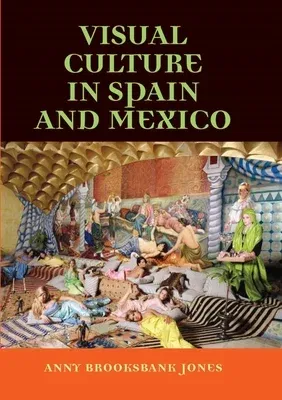Anny Brooksbank-Jones
(Author)Visual Culture in Spain and MexicoPaperback, 1 April 2011

Qty
1
Turbo
Ships in 2 - 3 days
In Stock
Free Delivery
Cash on Delivery
15 Days
Free Returns
Secure Checkout

Print Length
224 pages
Language
English
Publisher
Manchester University Press
Date Published
1 Apr 2011
ISBN-10
0719056799
ISBN-13
9780719056796
Description
Product Details
Author:
Book Format:
Paperback
Country of Origin:
US
Date Published:
1 April 2011
Dimensions:
23.39 x
15.6 x
1.19 cm
ISBN-10:
0719056799
ISBN-13:
9780719056796
Language:
English
Location:
Manchester
Pages:
224
Publisher:
Weight:
317.51 gm